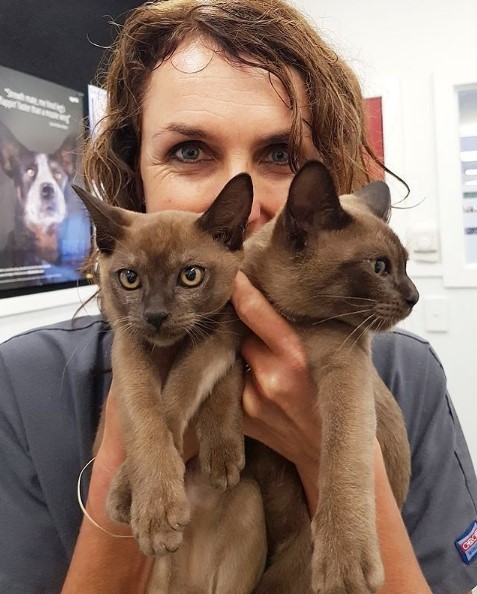Neutering, or castration, offers a number of advantages, especially if performed at an early age (3-9 months). Following puberty, at approximately 8-9 months old, the male cat develops a number of often undesirable behavioural changes. He will become territorial and start to mark areas, often in the house, by spraying urine, which will by now have developed a particularly strong (and difficult to remove) odour. He will start to enlarge his territory by straying ever farther from the house, particularly at night. It is for this reason that many cats involved in road traffic accidents are non-neutered males. By increasing his territory he will come into contact with other cats and so fight for dominance. Inflicted fight wounds can result in severe infections and abscesses. Since diseases such as FIV and feline infectious anaemia can be spread through bites it comes as no surprise to find that those cats most commonly affected by such agents are non-neutered tomcats. Finally, but not least, neutering prevents the siring of often unwanted litters. It also reduced the number of abscesses and car accidents.
The longer a tomcat is left to spray and fight, the less likely neutering will stop it.
Neutering, or spaying, in female cats also offers several advantages. Most obviously, it will prevent the prospect of unplanned litters. Once puberty is reached, on average at around 7 months old, during most of the year the queen will be “calling” for approximately 1 week in every 2-3 until she is mated. During calling she may display unsociable behaviour, which is often manifest as loud and persistent crying, and frequent rubbing and rolling on the floor. Such behaviour and her scent will attract pestering tomcats from miles around. This will all be eliminated by neutering. Finally, spaying will remove the risk of uterine infection, and will substantially reduce the future risk of breast cancer developing.
There is no medical reason for letting your cat have a litter before she is neutered. Psychologically this is bad for the queen, and markedly increases the risk of breast cancer later in life.
In most cases, for the reasons stated above, it is desirable to neuter before puberty, and it is customary to operate on kittens at an early age. The actual age chosen will depend upon the preference of your veterinary surgeon – many individuals will neuter both male and female cats at around 5-6 months old, however some operate at 2-3 months of age. Cats can be neutered at any age. It is possible to neuter when pregnant. Please contact the surgery for further details regarding our neutering policy.
Both male and female cats will have to undergo a general anaesthetic. This will involve a period of starvation (usually overnight) before the operation, however most animals can return home on the day of surgery, providing they have fully recovered from the anaesthetic.
In male cats both of the testes are removed in their entirety through a small incision in the scrotum. Stitches are not required in the skin.
In female cats the operation is performed through a relatively small incision made either in the flank, or in the midline of the abdomen. Both ovaries are always removed along with the entire or majority of the uterus. Normally, skin stitches will be placed, which will be removed after around 10 days, unless absorbable material has been used.
In general, complications are rare during neutering of kittens, however, as with all surgical procedures, there is always a small risk:
It is possible that any individual animal could have an untoward reaction following the administration of a drug. Such cases are impossible to predict, but are thankfully rare.
One potential danger arises from the cat not being starved correctly before being presented for anaesthesia. It is essential that all instructions to this effect are strictly followed.
In addition, any signs of ill health should be reported to your veterinary surgeon prior to an operation.
This can occur through a ligature slipping after the abdomen has been closed.
This may occur internally or around the incision wound. In most cases the infection can be controlled with antibiotics.

